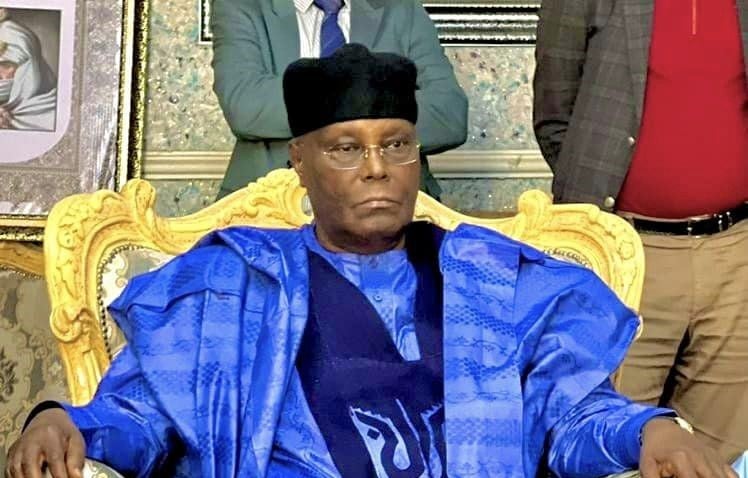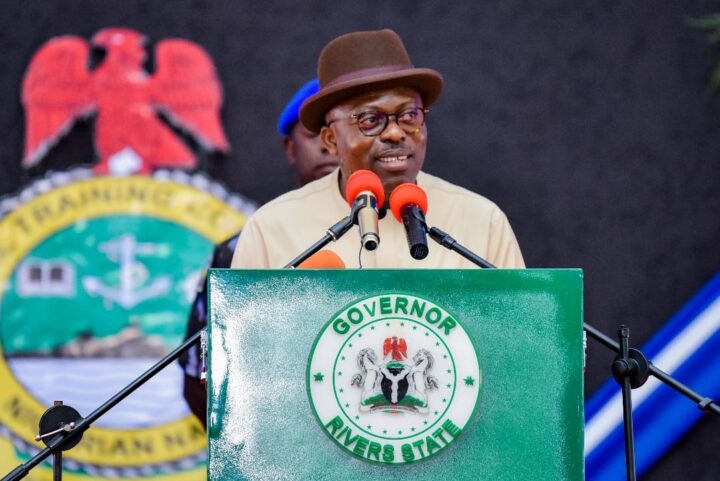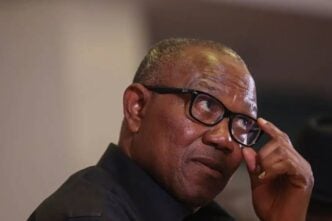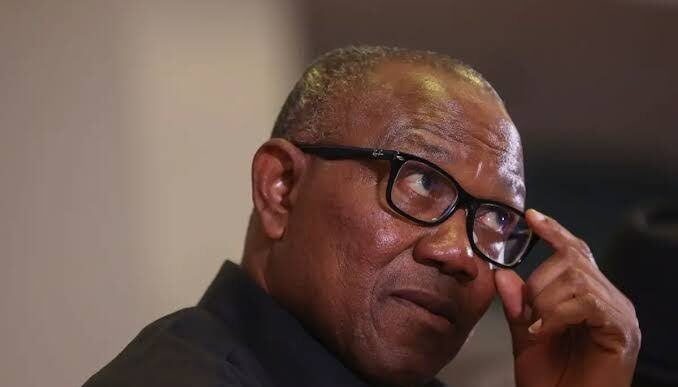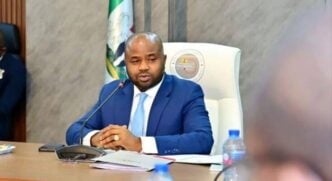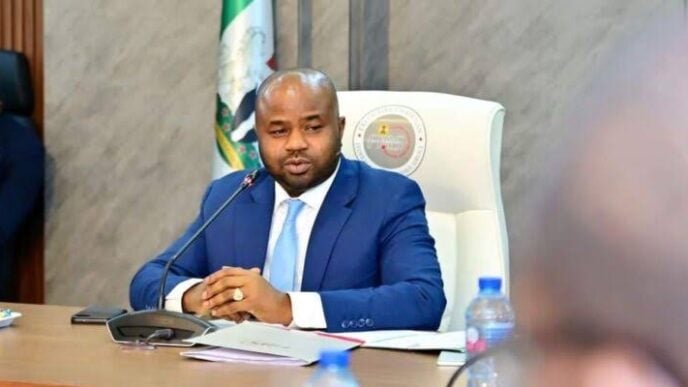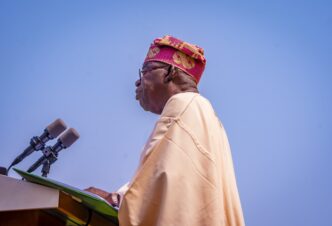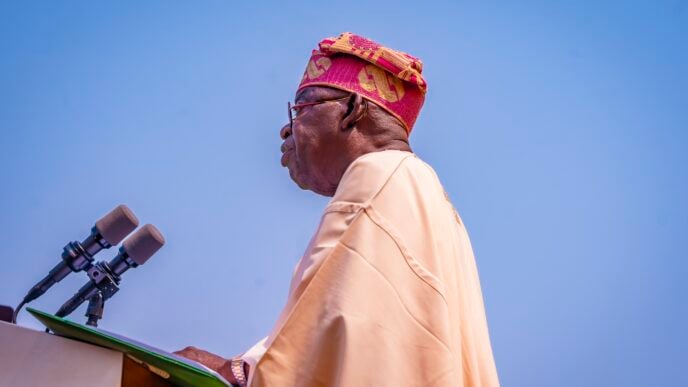There’s a concern that Nigeria could soon become a one-party state, not by law, like in China, but through subterfuge – or in legal terms, de facto – similar to Cameroon, Uganda, Equatorial Guinea, or even Rwanda, where the ruling parties are inflicting a slow, painful death on the opposition.
Those who express this concern have given many reasons. The clearest and most troubling, it seems, is the wave of defections to the ruling All Progressives Congress (APC) that has depleted the main opposition People’s Democratic Party (PDP).
Wave after wave
Apart from federal lawmakers from Osun to Kaduna and Niger states who have defected, as of April 25, Governor Sheriff Oborevwori of Delta state and his predecessor, Ifeanyi Okowa, and the entire Delta PDP structure defected to the APC, with more defections still anticipated nationwide. It’s likely that soon, five of the six South-South states, which have been the bastion of the PDP since 1999, may fall.
Advertisement
Concerned persons, mainly those in the PDP and civil society, have said these are not defections. Instead, they argue that they are negotiated exits by politicians to evade trial by the Economic and Financial Crimes Commission (EFCC) or for the personal political gain of the governors and other defectors. They have blamed the government of President Bola Ahmed Tinubu for instigating the defections out of a desperation to win the 2027 presidential election because his record in office cannot save him.
Chasing shadows
I think it’s nonsense. And though he did not use these words, former Vice President Atiku Abubakar, out of self-interest, put it more elegantly when he said he believed that defections are a fact of Nigerian politics and defectors are merely exercising their freedom of association under the law.
Advertisement
A serial defector himself, and sixth-time contender for the presidency, it would have been a surprise if he said anything else. The problem, according to Atiku, is not the defections but the two-year record of performance that, all things being equal, cannot return the president to office.
However, if the worst fear of Atiku and the opposition comes through, as is likely, and President Tinubu returns to office in 2027, as is probable, it would not be because of the defections; it would be because Atiku paved the way for the destruction of the PDP. He has proved to be the party’s undertaker-in-chief, something not often said, because it is convenient to blame Tinubu.
Best chance lost
For example, Sule Lamido, a leading member of the PDP, reportedly said on Tuesday that “the President should be fair” and save the opposition from being crushed. I’m unsure how much Lamido will pay Tinubu for self-sabotage. It’s surprising that one of the PDP’s founders does not know that a few of the founders ruined the PDP, and no one but its remnant can save it.
Advertisement
The party’s best chance since it lost power 10 years ago was in 2023 when the APC was at its most vulnerable. The government of President Muhammadu Buhari would have viewed a hostile takeover by the opposition PDP as mercy killing, if not as an act of charity. Lamido knows, more than anyone else, that Atiku stood in the way.
Rolling stone, no moss
After contesting and losing the APC primaries to Buhari in 2014, Atiku defected again to PDP in 2017 and contested the PDP primaries in 2019. At that time, the PDP was recovering from the catastrophic defeat of 2015, during which it lost nine of its 22 states and 93 seats in the National Assembly. In the winner-takes-all creed of the presidential system, the PDP faced a long harmattan of recriminations and decay while Atiku was away.
However, the party was gradually rebuilt, primarily through the efforts of Nyesom Wike, the Rivers State Governor at the time. When Atiku returned, the party was not what it was in its heyday. Still, it was not the ramshackle he had abandoned.
Advertisement
The calamitous record of the APC under President Buhari, the party’s division leading up to the 2023 election, and the overall mood in the country at that time indicated that Nigeria was vulnerable to a hostile takeover. The country was fed up with the APC.
Marabout’s prophecy
Advertisement
But Atiku, being Atiku, felt obliged to live up to the marabout’s prediction in 1998 that he would one day be Nigeria’s president. It was this pursuit of prophecy that got him into trouble with President Olusegun Obasanjo in 2003; it was the blind pursuit of it that drove him from the PDP to the Action Congress of Nigeria (ACN), and later to the APC. The obsession with this prophecy finally brought him back to the PDP. He just had to run.
But it shouldn’t have happened in 2023. While the odds favoured another party to succeed the exhausted APC, it certainly did not favour a northerner to run. Not after eight years of Buhari, a Northerner, not after Tinubu had wrested the flag of the APC, and certainly not when the convention in the PDP favoured rotation.
Advertisement
Atiku cast aside the odds, defied the restraints of common sense, ignored the party’s convention and a last-minute understanding after a key London meeting, and subverted the primaries to carry the flag. Things, quite naturally, fell apart.
Looking for a scapegoat
Advertisement
The rest is history. The PDP lost. The party that boasted that it was Africa’s largest party, destined to rule for 60 years, lost its way, leaving its members desperately searching for shelter and rehabilitation, and looking for rest wherever it may be found.
How can that be Tinubu’s problem when Atiku, the wrecking ball, still sits pretty? I understand the hysteria in the opposition, but it does not have to waste its current misery looking for scapegoats outside. Two years is still a reasonably long time to rebuild. The rise of Peter Obi nine months to the last general election and the impact the Labour Party made show that voters will reward a viable alternative platform.
The word here is viable. Not a party led by opportunists who have made a life career of running with the hare and hunting with the hounds. Say what you like about Tinubu, he has stood with his progressive brand of politics for nearly 30 years, even standing alone against all odds and at significant personal and reputational costs.
Go, Atiku, go
If the PDP is serious about a future, and Atiku cares about it, he must immediately drop his ambition to run again. This ambition is at the heart of the current turmoil in the party; it was why the PDP broke into three factions on the eve of the last election; it was why he has been unable to rebuild the ruins two years later. And it is why he is arguably the first Nigerian presidential aspirant to lose two running mates to defections.
There’s no point blaming Tinubu for the wreckage, or getting angry with Okowa for sexifying his incredible opportunism as the beginning of a movement. PDP will get a fresh start on life when Atiku, the main obstacle, steps down. Everything else is a waste of time.
Ishiekwene is the Editor-in-Chief of LEADERSHIP and author of the book Writing for Media and Monetising It
Views expressed by contributors are strictly personal and not of TheCable.

